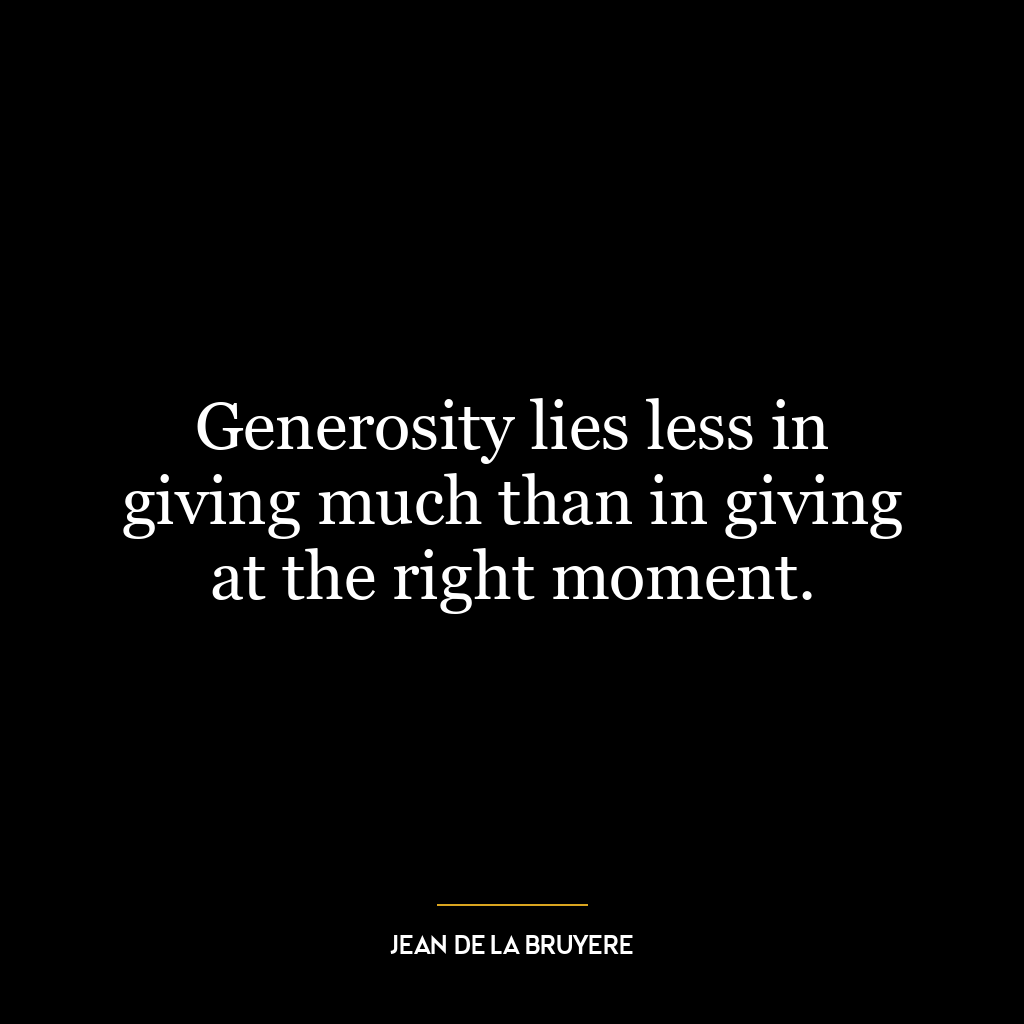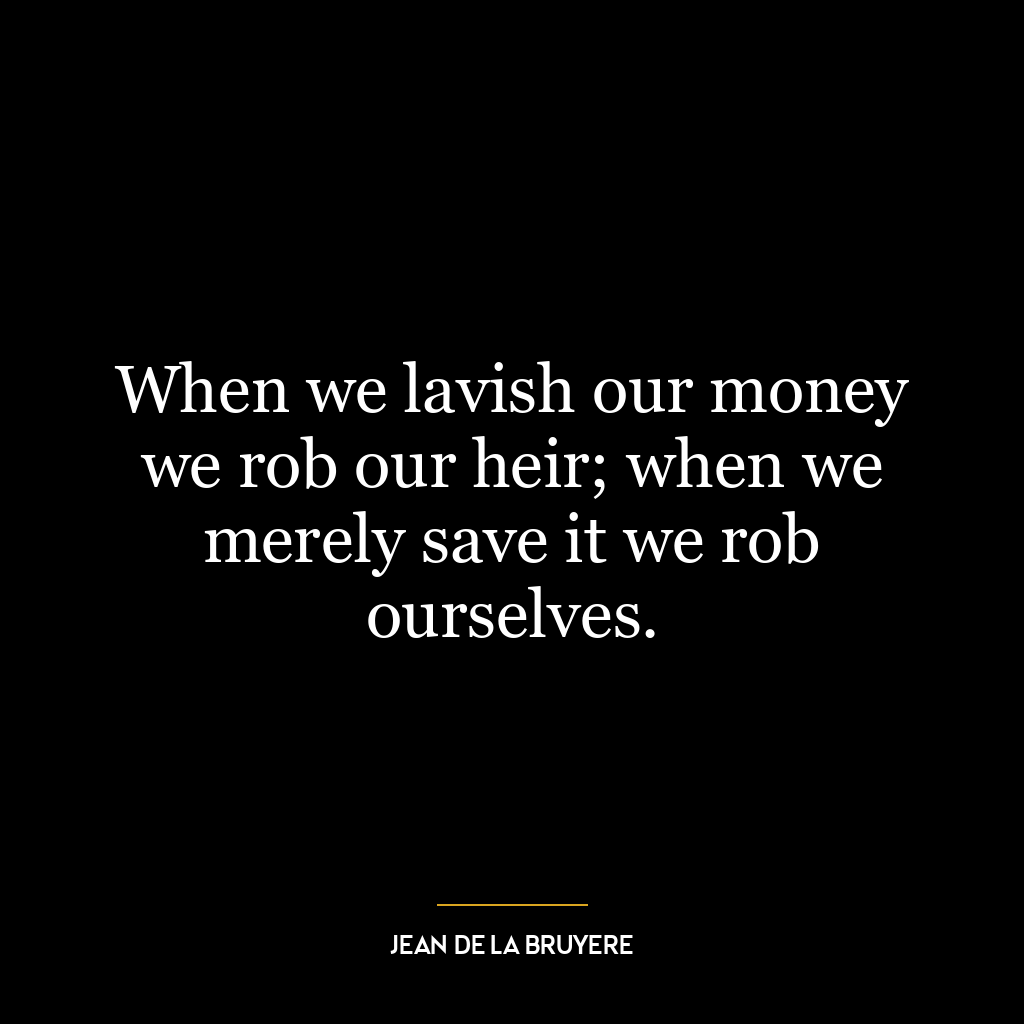Generosity consists not the sum given, but the manner in which it is bestowed
This quote implies that the value of generosity is not measured by the amount of what you give, but rather by how and why you give it. It emphasizes the importance of intention and manner in giving, suggesting that a small act given with genuine love and thoughtfulness can mean more than a large gift given for show or out of obligation.
In essence, it’s about the spirit behind your actions. If you give grudgingly or to impress others, then even if you give a lot, it doesn’t truly embody generosity. But if you give willingly and joyfully, even something small can be an act of profound generosity.
Applying this concept in today’s world could mean focusing less on material wealth or grand gestures as signs of success or kindness. Instead, we might consider how we can make our everyday actions more compassionate and thoughtful – perhaps by offering our time to help someone else without expecting anything in return, or by expressing gratitude for what we have rather than constantly striving for more.
In terms of personal development, this idea encourages us to cultivate an attitude of genuine care towards others rather than focusing solely on ourselves. It suggests that true growth comes from developing empathy and understanding – qualities which are reflected not in how much we accumulate for ourselves but in how much we’re willing to share with others. This could involve giving our time, energy or resources without expecting anything back; recognizing that everyone has something valuable to offer; listening attentively when someone else is speaking; being patient with people who are different from us; showing respect towards all living beings etc.
Thus Gandhi’s quote inspires us not just to be generous but also humble because humility allows us recognize that giving is not about making ourselves look good—it’s about genuinely wanting to make a difference.









